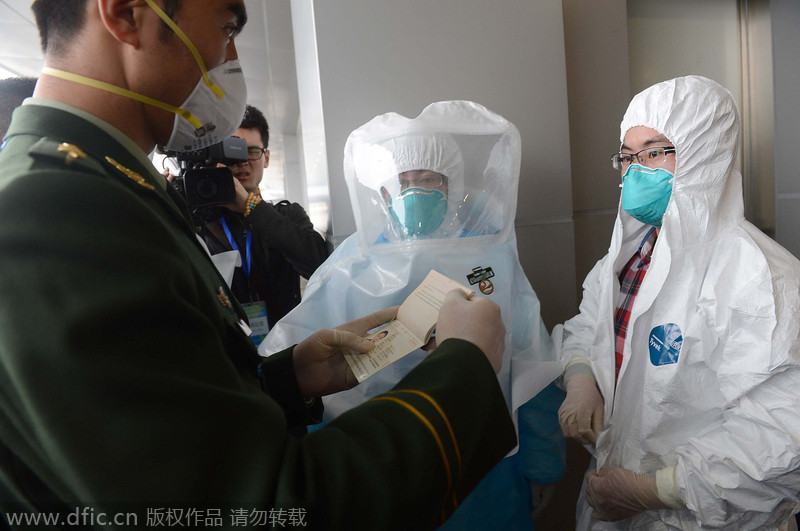 |
|
A border guard goes through the entry formalities for the patient witheboladisease at Chengdu Shuangliu International Airport. Chengdu Health Bureau, Entry-exit Inspection and Quarantine Bureau and Chengdu customs held a joint drill?to receive?Ebola patient on Nov 7, 2014. [Photo/IC] |
|
 |
|
Bernhard Schwartlander, the World Health Organization's representative in China |
China's response to SARS and Ebola has focused on preventing outbreaks, slowing infection rates, arranging treatment programs, and preparing the health services to respond effectively, Schwartlander told China Daily.
"The 2003 experience of SARS in China changed the way in which information was shared and communicated, and quick, transparent, accurate information is one of the key tools that can be used to address an outbreak and avoid miscommunication and panic," he stressed.
More recently, China took rapid action to prepare for the potential spread of Ebola by strengthening the surveillance and screening systems at airports and other points of entry.
It also took measures to quickly develop and disseminate technical guidance to health workers on the prevention of infection and control.
The Ebola outbreak has officially claimed more than 4,900 lives, and 13,042 have been infected across the world, according to the WHO.
Recent cases in Spain and the United States demonstrate that no country is immune to the possibility of imported cases, Schwartlander said.
"The best way to prevent Ebola arriving in China is to quell the outbreak in Africa. China is providing strong financial support and deploying significant numbers of health and medical staff, and equipment to the countries affected," he said.
China's contribution to the response to the crisis has reached 750million yuan ($123 million), including direct financial assistance to the three worst-affected countries, and contributions to the WHO, the World Food Programme and the African Union.
"China will also continuously deploy medical staff, including health officials, medical doctors and nurses, public health doctors and epidemiologists to the affected countries," Schwartlander said.
China and other countries are working together on stopping the Ebola outbreak and treating the infected, he said.
Christopher Dye, the WHO's head of strategy, said that despite a slowdown in the outbreak in Liberia, one of the worst-hit countries, it's still too early to claim victory.
Schwartlander said: "The possibility of an imported case of Ebola exists—just as isolated cases have happened in other countries," and he urged all countries to be vigilant.
China's rapid reaction to the possibility of an outbreak, and the measures taken at ports, airports and other points of entry are in line with the WHO's declaration in August that Ebola is an international public health emergency, he said.
Schwartlander also said that China is in the process of building laboratories that conform to P4, the highest bio-safety level, which is a requirement for research into the most dangerous viruses, such as Ebola.
